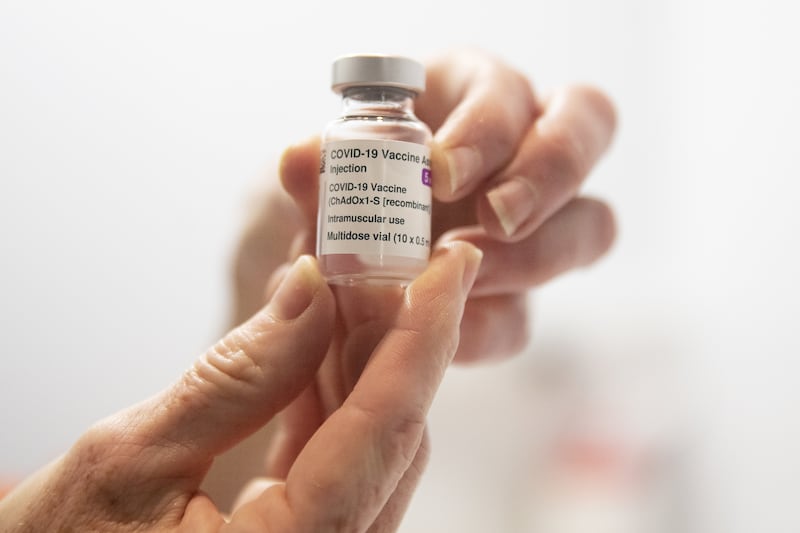People in their 60s have “much more to fear” from Covid-19 than they do from the AstraZeneca vaccine, a senior health official has said.
Dr Colm Henry said cases of blood clotting are “extraordinarily rare” and appealed to anybody in the 60-69 age group to have the vaccination.
The chief clinical officer’s comments came as the Health Service Executive’s Covid-19 vaccine registration portal opened to people aged 68.
“AstraZeneca vaccine is a really good vaccine,” Dr Henry told Newstalk Breakfast on Friday.
“I know there was bad publicity, and there’s talk and concern over what have been a very small number of cases.”
But he said more than 35 million doses have been administered in the UK and the EU to date and in-depth analysis has shown 88 “extraordinarily rare” blood clotting cases, and that these cases have “rarely ever” been reported in older people.
He said this is why the National Immunisation Advisory Council has advised against using the AstraZeneca jab in younger people.
He emphasised that the chance of getting seriously sick from Covid-19 and ending up in hospital and ICU is significantly higher for people in their 60s than younger people.
“I would say to anyone between 60 and 69 who is offered the AstraZeneca vaccine: take it and register,” he added.
“You’ve much more to fear from the virus than you have from the vaccine.”
Yesterday, more than 30,000 people, aged 69, registered for the vaccination through the portal.
HSE has said it will take three weeks to give the first doses to people aged 65-69 and a further three weeks for the 60-64 age group.
Those in the 60-69 age group are being offered the AstraZeneca jab and do not have a choice of which vaccine they receive.
But some GPs have reported that some patients are hesitant about having the AstraZeneca vaccine after the HSE restricted its in people under the age of 60 due to rare blood clotting concerns.
Overall, Dr Henry said there is “lots of ground for optimism”.
“It’s not just the feeling of spring and summer, it’s also the real figures that are starting to show a definitive trend,” he said.
“The 14-day incidence was nearly 1,500 in the middle of January, now it’s 162,” he said.
“The average number of cases, the five-day moving average in the middle of January, was 6,800, now it’s 388.
“It’s still high but it’s a fraction of what it was. And hospital admissions, we see them fall below 200 for the first time since December.”
He attributed the figures to the impact of the rollout of the vaccination programme.
“We’re seeing a collapse in outbreaks in nursing homes – no outbreak last week, but we had seven a day in January,” he said.
“Cases among acute healthcare workers in hospital collapsed from 1,000 a week in January to 11 last week.”
HSE chief executive Paul Reid said that, after a “rollercoaster week”, he believes there are “good days ahead”.
Today, he tweeted: “After a rollercoaster week, the programme has again been reset to an exciting phase, as it now reaches the wider population.
“Today the online system is open for those aged 68 to register. Good days ahead.”
Dr Henry said Ireland remains “on track” to meet its target of giving four out of five people their first vaccine dose by June.
There was a double setback to the vaccine rollout earlier this week, with health experts recommending the AstraZeneca vaccine only be given to people over 60 in Ireland, and delays to the Johnson & Johnson/Janssen vaccine over safety concerns were announced.
But it was tempered on Wednesday by news that around 550,000 extra doses of the Pfizer jab are to be delivered in quarter two this year.
Dr Henry said health officials have a plan and that they are also looking at extending the gap between doses of the Pfizer vaccine so more people can receive their first dose quicker.






